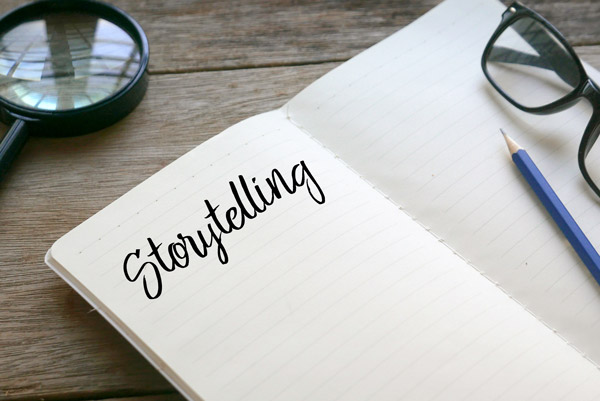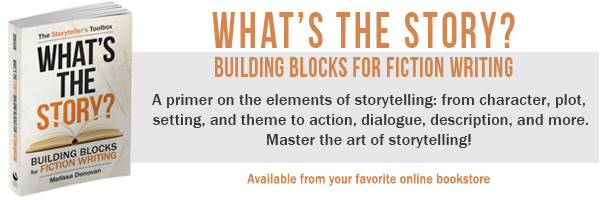Have you ever struggled with a story idea only to give up because it seems like every plot has already been done?
Maybe you focus on character development to make up for a weak or formulaic plot. Or maybe you focus on plot, only to end up with characters that feel flat, stereotypical, or unsympathetic.
Some stories are plot-driven: they take us through twists and turns that keep readers glued to a story. Others are character-driven: readers keep turning the pages because they’ve become attached to the characters and need to find out what happens to them. But some of the best stories strike a balance between a compelling plot and intriguing characters.
Plot-Driven Stories
The most patently plot-driven story I’ve ever read is The Da Vinci Code (aff link). The characters weren’t very developed and their arcs were mediocre. They weren’t memorable, and I never felt particularly attached to them, or even interested in their fates.
But the plot was mesmerizing — a real page-turner packed with puzzles. I couldn’t put the book down and stayed up all night to finish it in one sitting.
Plot-driven stories usually engage our curiosity and stimulate our intellect. They emphasize the events in a story rather than the character’s experiences of those events. Mystery, suspense, and crime stories are often driven by plot; we are drawn into the questions that the story asks, and we keep turning the pages until we get the answers: we want to know how to solve a puzzle, who committed the crime, or what will happen after the asteroid plummets into Earth.
Character-Driven Stories
Character-driven stories focus on character development, character arcs, and the various struggles and challenges that characters face. We’re less interested in the plot unfolding than we are in how the story’s events affect the characters.
We humans are social animals and are inclined to develop attachments to characters, as long as the narrative provides good reasons for us to care about what happens to them.
When characters are faced with a challenge, we want to see how they rise or fall to the occasion. When they encounter difficulties in their personal relationships, we want to see how they resolve their problems. We want to see them survive or thrive, and sometimes we want to see them fail, as might be the case in a story about an antihero.
Because we care about the characters in character-driven stories, we can form deeper attachments to them and the stories they inhabit. Character-driven stories often leave a lasting impression on readers, because they’re based on emotional rather than intellectual interest.
Plot vs. Character: Striking a Balance
Some readers insist that they need a gripping plot to keep them interested. Others say that the best stories are built around characters. And writers are split on the issue too. Some work from a plot outline while others work from character development.
Of course, the best stories make good use of both plot and characters.
Whether plot or characters drive your story will be totally subjective. Each writer must find a style for story development that feels comfortable and produces desired results.
Do you focus more on plot or characters? Do you try to strike a balance? Which kind of stories do you prefer to read? Share your thoughts by leaving a comment, and keep writing!






I’ve always felt that plot and character are so inextricably linked that you can’t separate one from the other.
Successful “plot-driven” stories, imho, generally have better characters than people give them credit for — it’s just that the characters are archetypes, and not anything new in themselves. But for the plot to work, the characters have to have that drive/motivation that makes a character work.
Most of the plot-driven stories that I’ve read have characters that I would call stereotypes rather than archetypes. However, I haven’t read them all, and I’m sure there are many plot-driven stories with wonderful, archetypal characters.
The best kind of stories are the ones that have both strong characters and plots. You can put a new twist on plot and character types to make it your own and stand out from similar stories. I love the idea that settings and things can become characters in and of themselves. I remember when Batman Begins came out many people said that Gotham City was a character in the movie.
Batman Begins is one of my favorite superhero movies.
Good post and I agree with all your followers both are needed.
Here’s a question – can good writing save a bad story – or vice versa?
For me, a good story can only take you so far until bad writing makes you want to stop reading. A while ago I tried to read James Dashner’s “The Maze Runner,” and while the premise was promising, I was completely taken out of it by the poorly-written characters. As for good writing with bad story, I feel that good writing would be wasted if it didn’t go into the service of a cohesive and/or interesting plot.
I don’t think anything can save a truly bad story, and I don’t think horrid writing can be saved by a good story either. It’s really a matter of degree. The quality of the story and the writing work together. So a mediocre story with superb writing is more enjoyable than, say, a bad story with mediocre writing. But it’s all subjective — there will be some readers who love a book that others think is terrible.
I’d like to hear what the experts say on this (Rod Raglin’s question), but as for me, I have to say that sometimes when browsing much-hyped novels in bookshops, I am put off by the writing style and feel I simply don’t want to endure it, even if the story as indicated by the blurb sounds enticing. But this is probably because I agree with Oscar Wilde that ‘if one cannot enjoy reading a book over and over again, there is no use in reading it at all’. At the same time, self-conscious writing which somehow makes me constantly aware of the author trying too hard to write in a particular style can ruin an otherwise good story …
I think we all encounter books that look interesting but the writing style turns out to be unappealing. It happens. I’m not sure I’d assume that authors are trying too hard or attempting to write in a particular style…maybe that’s their natural mode of writing. Or maybe some authors are more concerned with style than substance. But I agree that sometimes a story can get buried in problematic writing.
I’ve been reading Writing Forward for some time and saving it to file. At 87 my memory isn’t what it used to be, thus these become part of my ‘Reference Files’. I’m quite impressed with the quality of your articles. Please keep it up.
David of Dogpatch
Thank you for your kind words. Comments like yours help me stay motivated to keep this site going. Keep writing!
I am a pantzer writer. I never have a plot, or any idea where my story is going when I start writing.
I think this style of writing allows creativity to flow much better.
R.G. Ramsey
I agree that it’s fun and creative to write that way. However, there are benefits to plotting. I find that plotting results in fewer revisions. Each writer needs to find the method that works best for them.
I find that while I can visualise a plot and work with it, the characters seem two dimensional. I need to work at making them real first to myself, else no one will believe in them.
Maria, that makes sense to me! It’s funny–some characters will come to me fully formed, complete with a backstory and personality. Others appear (usually because the plot needs them) but remain vague or elusive.